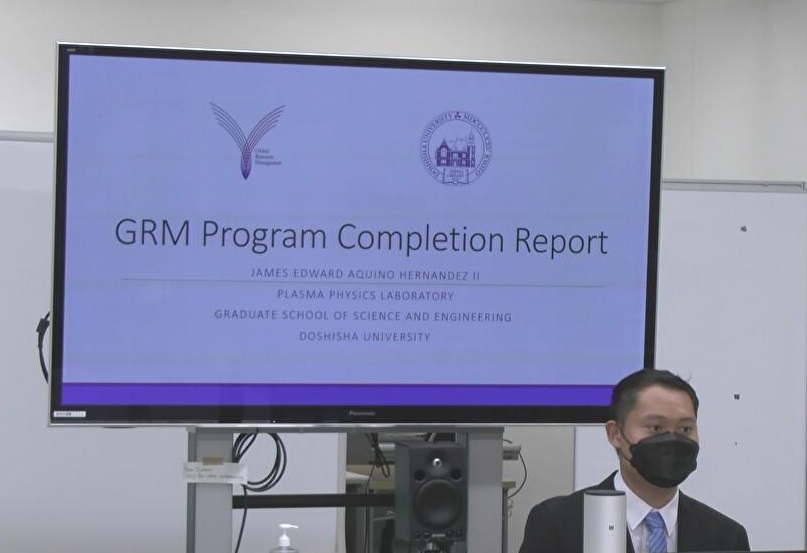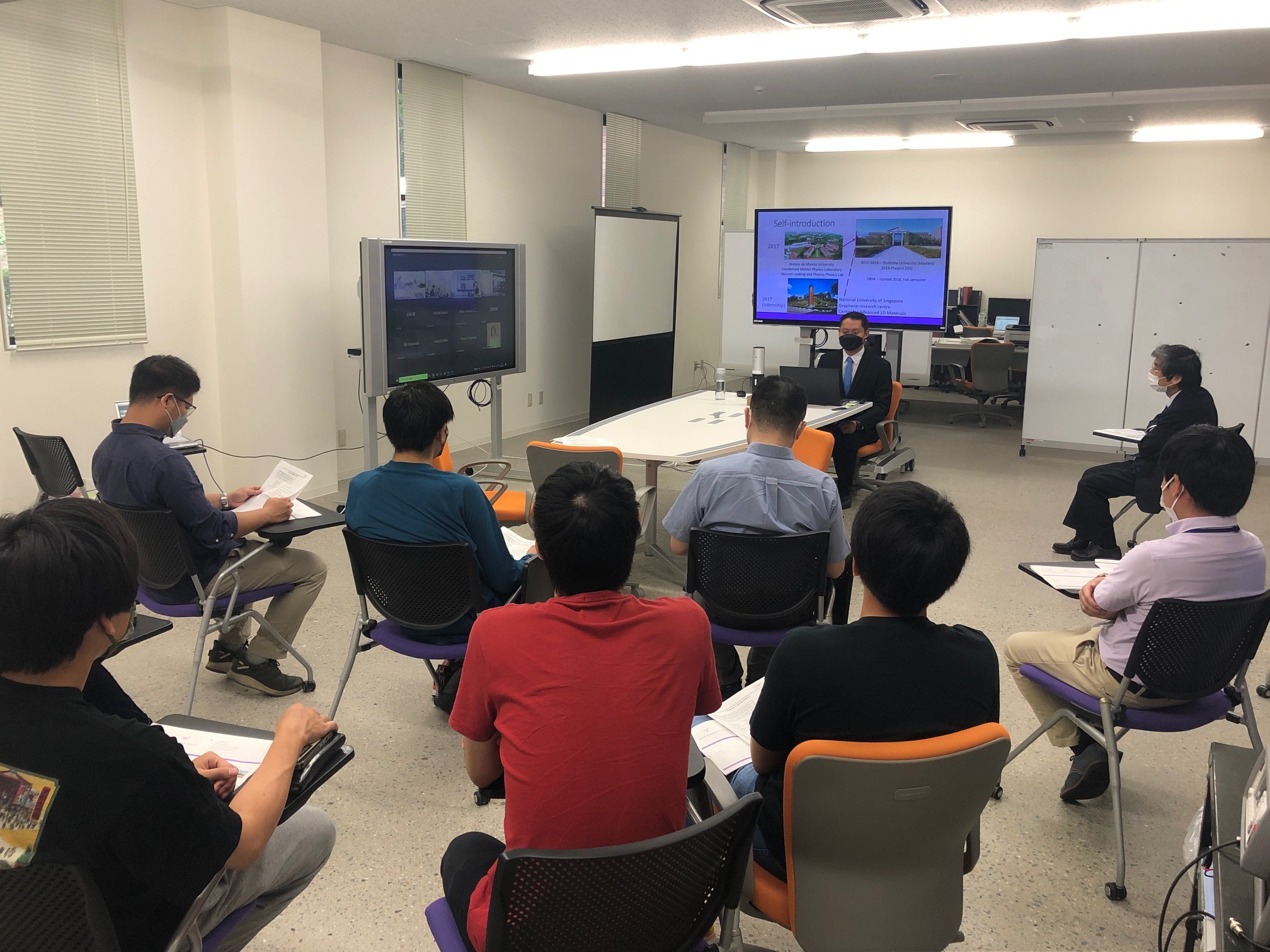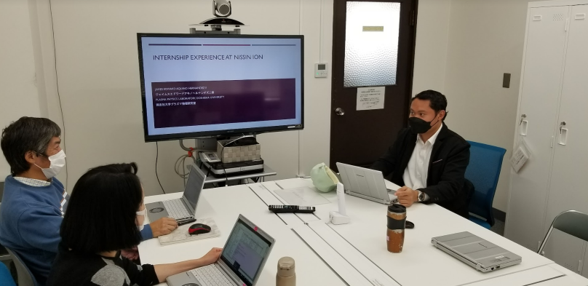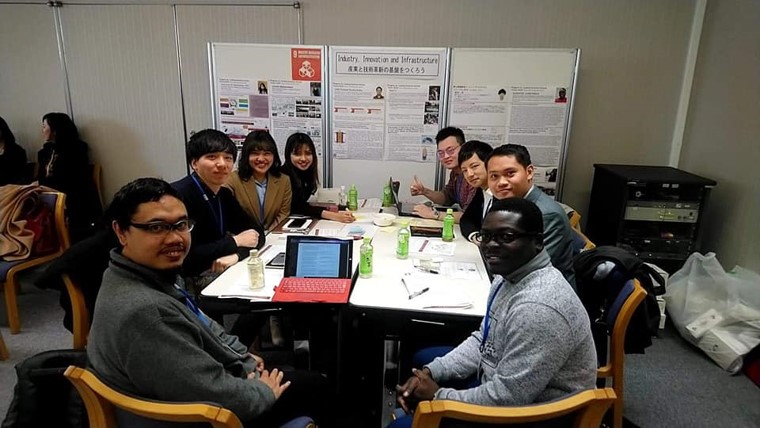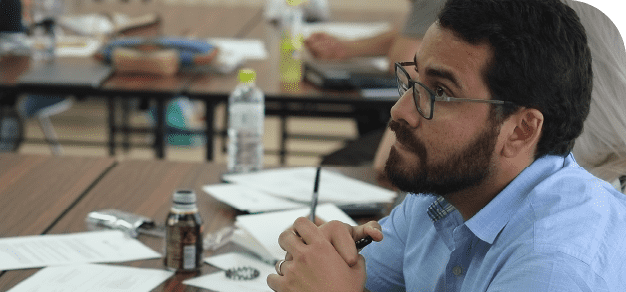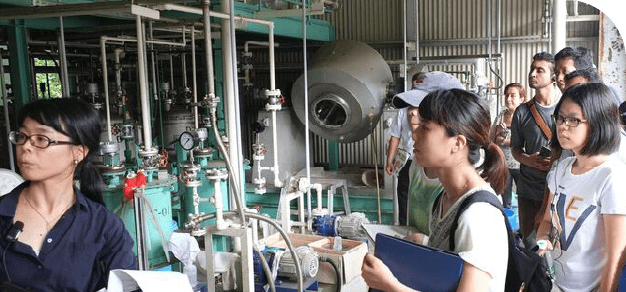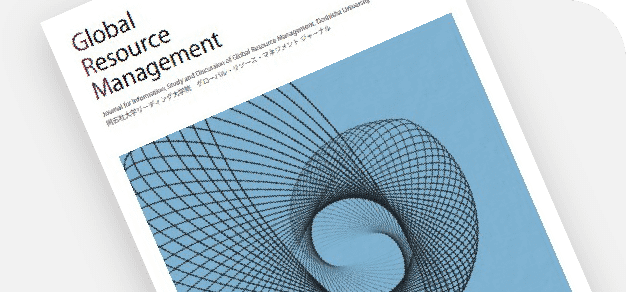GRM Students’ Reports
GRM Program Completion Report
Graduate School of Science and Engineering HERNANDEZ JAMES Edward II Aquino
2022/07/21
Ever since my enrolment in the first classes of the program, I have been exposed to various situations which sought unique and innovative solutions given my current skillset. These situations involve improvement of social situations of places within and outside Japan in terms of proposing applicable infrastructure (in the case of Hachijojima power plant) as well as livelihood ventures (as with the Van Gujjar fieldwork). Having these situations at hand, I learned how to treat the problems objectively while considering a ‘social lens’. This ‘social lens’ enabled me to think further—not just proposing what is easily attainable but considering the applicability of the proposal itself to various social settings. For example, the economic capability of the village must be considered to evaluate the feasibility of a project. Still, the consideration this capability alone does not ensure the success of the project. For instance, despite the economic factor taken into account, cultural aspects may serve as a challenge to be overcome. An example of this is the problem lies on the restriction of land ownership to Sikkim residents, causing a challenge towards the development of a hydroelectric power plant to the region. In turn, the group had to come up with alternatives to circumvent the situation—by sending awareness towards the economic benefits of partnering with an external business in the construction of the power plant. Another example is the challenge towards the development of a geothermal facility near Tokyo. Due to the lack of awareness of the populace to the benefits of geothermal power, the group had to conduct surveys as to evaluate the social condition of the region.
Despite not finding a direct relation between my doctoral research and the GRM program itself, I have learned soft skills such as group management and communication, among others. In my engineering background, I was also able to integrate my hard skills of data analysis towards coursework which required numerical background. I was able to utilize my skills in 3D modelling to create a rough draft of a power plant design that is proposed to be implemented in the Ratanakiri regions. The ability to research was also demanded from the program, which has pushed me to improve on how to handle and judge information. Through the program, I was also able to learn how to set a broader standard, with an eye for application rather than the mere presentation of output. I learn to question more and expand my curiosity towards the situations outside of what I know. I learned to be grounded as well towards those who are experiencing economic injustice, as well as those bound by political control.
From the group activities and fieldworks, I learned the background of various communities, as well as the issues which face them. In our fieldwork in Gifu, the economic decline of the city has been discussed, while possible solutions were suggested. Since the city is based mainly on agriculture, learning the problems surrounding the city made me think on the similarities with those in my country. Through those discussions, I have also learned about the wider causes of these issues, which led me to the realization that solutions may be present but not easily applicable. From the groupworks we had, I learned the perspectives of my fellow group members, as well as their way of solving problems given their different background from my own. Working with them led to interdisciplinary discussions from which I was able to expand my views in. I was able to adapt myself from the various perspectives and realize that I too, can form social contributions. Therefore, the groupworks also encouraged us to think collaboratively, in contrast to the independent efforts required for my own research. This is also evident in the fieldwork in Uttarakhand, where we have collaborated with a University in Texas and research Institutes in India to identify possible livelihood methodologies for an economically challenged tribe in North India.
Not only that the groupworks improved my social perspective, GRM activities enabled me to appreciate Japanese technologies which lead to the current state of the country. Institutions such as the Keage water treatment facility and Hachobaru geothermal power plant, in a way, served as inspirations for me to envision the state of my own country, if such technologies would also be implemented. I believe that some of the goals of this program are to allow us to experience the origins of the convenience we experience here in Japan that we take for granted, and that other treat as luxuries. The program, in a way, got me to learn some mechanisms that lead to these ingenuities. Learning the existence of these technologies also made me experience a part of Japanese history, and to recognize the ability of a nation to achieve such mark in the world. In the same way, I learned how to appreciate the technological achievements of my own country. From the conferences we held in the Philippines and in Kyoto, I get to recognize the recent progress of my country in terms of the lighting sector, as well as materials fabrication.
Overall, I believe that the program has significantly opened my perspective towards a global mindset which is more considerate towards the individual struggles of each society bound by complex sets of factors and restrictions. The program helped me navigate through finding solutions using my own skillsets and provided me tangible opportunities to encourage me to be of higher standard. Even as a student, I was exposed to the realities from which problems, which I believe, larger than my own, that communities are continually resolving. I believe that the program has prepared me to tackle future problems that I may encounter, at least in my future career. Also, I think that GRM has linked Japan and my country better, since activities were well-arranged by Doshsiha and my university during my undergraduate period. Opportunities provided to me by the program encouraged me to also give back to the program by, wherever I can, collaborating to future research endeavors that the university might be offering.
